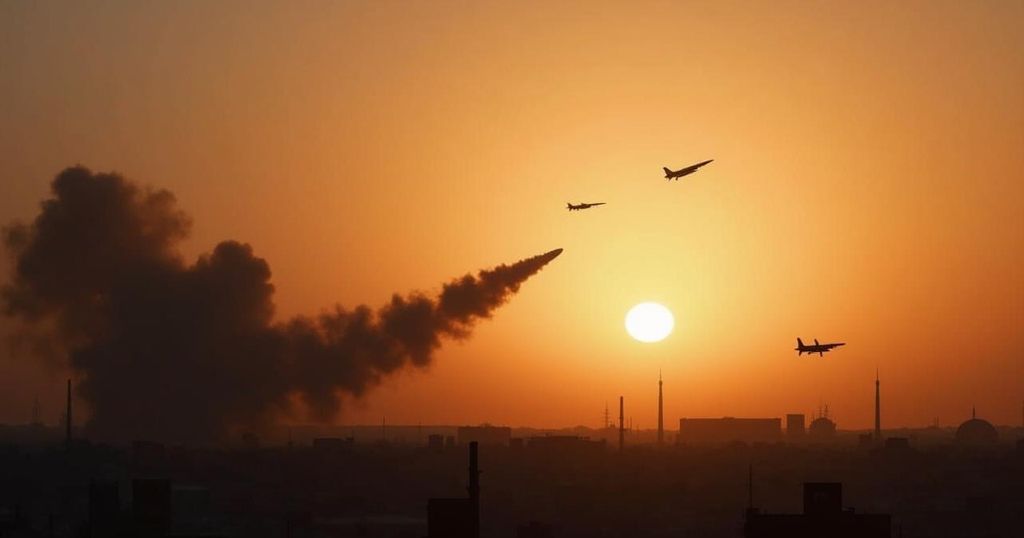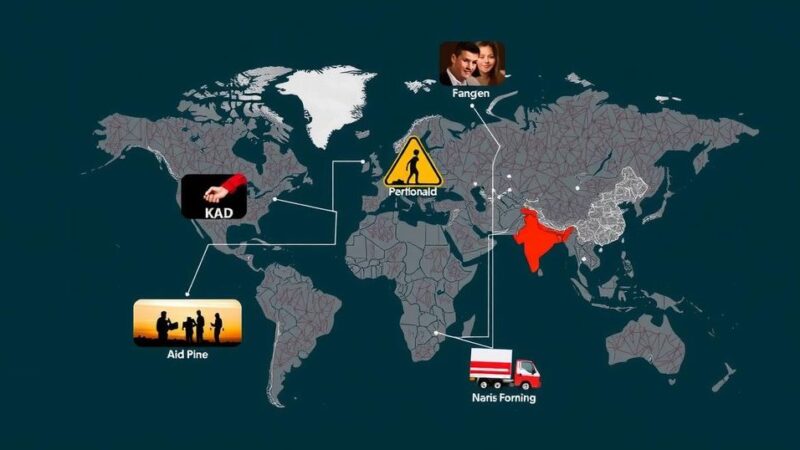Egyptian airspace operates normally following a significant missile attack by Iran on Israel, with the Ministry of Civil Aviation assuring safety and uninterrupted operations. Jordan and Iran’s airspace closures have led to flight disruptions that Cairo is managing proactively. Meanwhile, the conflict continues to escalate, with heavy military retaliations planned from Israel.
On October 2, 2024, the Egyptian Ministry of Civil Aviation assured the public that Egyptian airspace remains secure and continues to operate normally amidst escalating tensions following a substantial missile attack by Iran on Israel. The ministry confirmed that air traffic is functioning according to safety standards and is maintaining regular operations. In response to neighboring nations, such as Jordan and Iran, closing their airspace due to the regional crisis, the ministry noted that EgyptAir flight MS 701 from Cairo to Amman returned to Cairo International Airport. The local public relations teams swiftly assisted passengers affected by this disruption. Additionally, Cairo airport heightened its alert status in anticipation of potential diversions from other regions. Travelers to Baghdad, Erbil, and Jordan were encouraged to verify their flight arrangements, with the ministry pledging ongoing updates regarding the situation. The missile strike on Israel, involving the launch of nearly 200 missiles, is reported to be Iran’s most aggressive military action to date, spurred by previous Israeli strikes that resulted in the assassination of key Iranian-affiliated leaders. The period leading up to these escalations has seen significant casualties on both sides, resulting in heightened calls from Egypt, the United Nations, and various global leaders for a ceasefire to ease rising unrest in the Middle East. Despite these calls, Israel continues its military operations, deepening concerns over a broader conflict in the region. In the aftermath of the assault, Israeli officials, including Prime Minister Benjamin Netanyahu, promised a forceful response, indicating the potential for further escalations in the conflict. The international community, including the European Union and the United Nations Security Council, is actively addressing the crisis, calling for resolutions to restore peace and stability.
The current geopolitical climate in the Middle East is marked by increased military confrontations, particularly between Israel and Iran. Tensions have been further exacerbated due to ongoing violence in Gaza and the broader region, with significant casualties reported. Iran’s missile attacks are viewed not only as retaliation for the deaths of its military leadership but also as a response to what it perceives as an existential threat posed by Israeli operations in the region. The ongoing conflict has prompted urgent pleas from international leaders for a ceasefire and peace dialogues, with the goal of preventing further escalation and maintaining regional stability. Egypt, having historically played a role as a mediator, is positioned to facilitate dialogues between conflicting parties while ensuring its airspace remains a safe corridor amidst the chaos.
In conclusion, the security of Egyptian airspace remains intact despite the recent missile onslaught by Iran on Israel. As both nations prepare for further military responses, the implications for regional stability are severe. Egypt’s proactive measures in maintaining air traffic safety and coordination with other nations underscore its commitment to regional security. The international community’s engagement in seeking a ceasefire reflects the urgent need for diplomatic efforts to alleviate the humanitarian crisis and prevent a broader conflict in the Middle East.
Original Source: www.egypttoday.com






